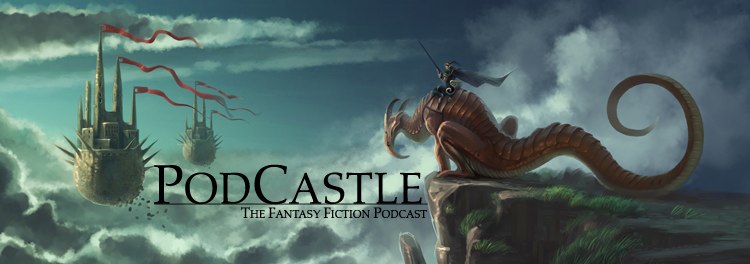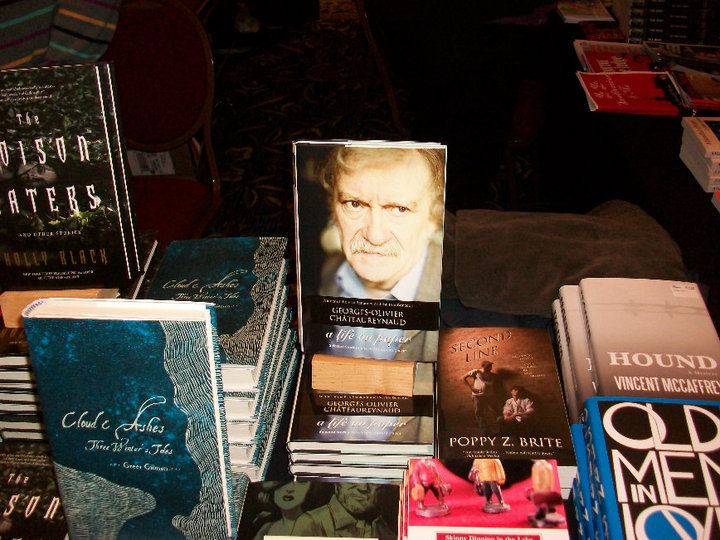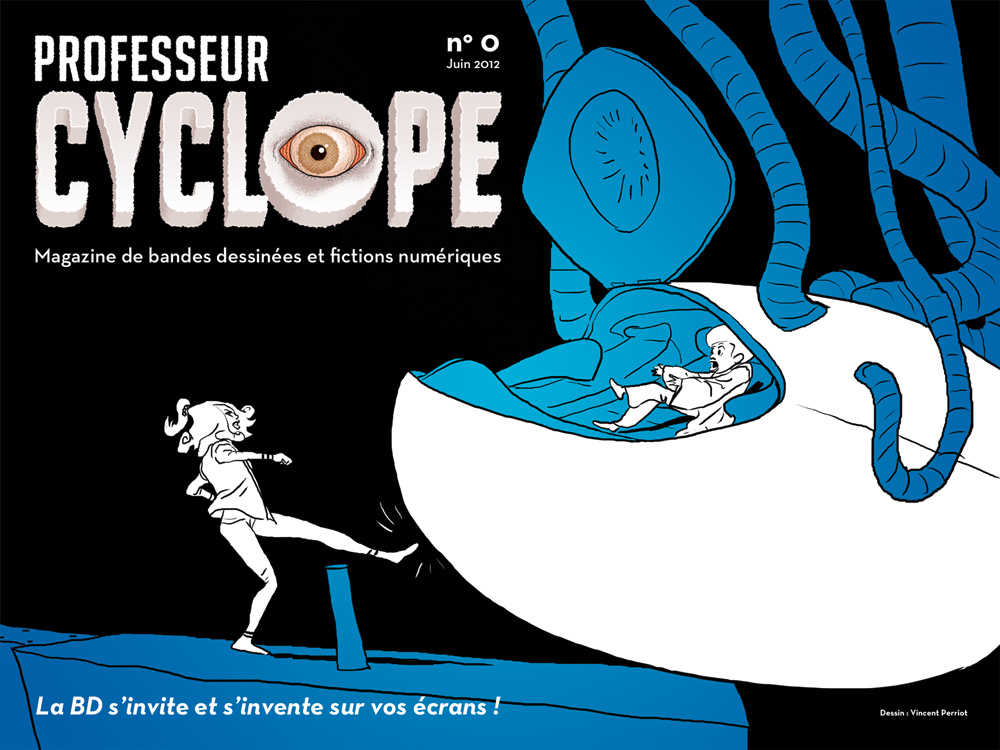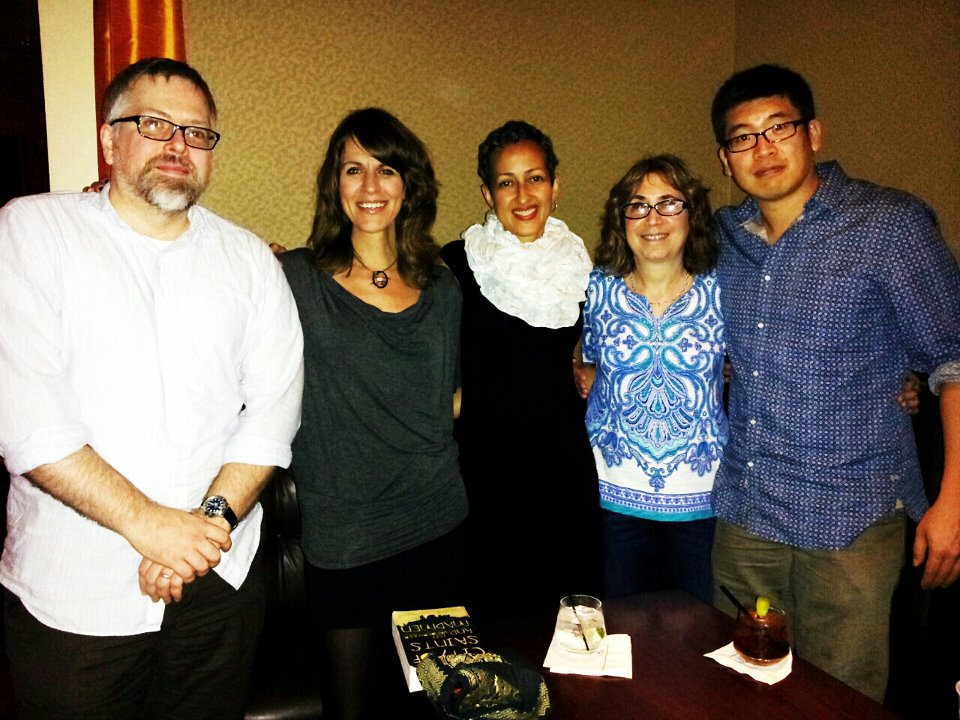March 29th, 2013 § § permalink
Cameron Hatheway, the host of the podcast Cammy’s Comic Corner (Twitter: @CamComicCorner) has these kind words of praise for the far future graphic novel by Fabien Vehlmann and Gwen de Bonneval:
I’m happy to report that Last Days of an Immortal from Archaia certainly does live up to the praise, and deserves every bit of your undivided attention. Imported from Europe and adapted for the English speaking audiences, this book is truly an out of this world reading experience, and dare I say one of my favorite graphic novels in recent memory.
I recently presented a paper on Last Days as part of a Graphic Novel Adaptations panel moderated by Isabella Van Elferen at the 34th annual conference of the International Association for the Fantastic in the Arts.  It was an extension of thoughts I’d been working on in Henry Jenkins‘ Media Specificity class last fall, first published in a different form at Weird Fiction Review.
March 28th, 2013 § § permalink
March 26th, 2013 § § permalink

Belgian fabulist Paul Willems’ fairy tale “The Colors of the World†(first published last year in Scheherezade’s Bequest #15) is now live at Podcastle, exquisitely read by Clarion West grad Marguerite Croft and generously guest-hosted by Mr. Wilson Fowlie.
Now, on the ninth day, toward evening, as the sun was painting a splendid golden pathway on the waters, Marie heard a marvelous song in the distance and saw, where the golden pathway reached the edge of the waves, a mermaid lying at the water’s edge. She sang of her seaweed castle in the depths of the sea, and of the child playing in its largest hall.
“Mermaid, is that my little girl?â€
“Yes it is, your little girl, she’s in my castle at the bottom of the sea.â€
“Mermaid, take me there!â€
Paul Willems (1912-1997) belongs to the final generation of great Francophone Belgian fantasists of Flemish descent. He published his first novel, Everything Here is Real, in 1941. Three more novels and, toward the end of his life, two collections of short stories bracket his career as a playwright, for which he was best known in his lifetime. Donald Friedman’s translation of his late novella The Drowned Land was nominated for the Dublin IMPAC Literary Award. I’ve also published Mr. Willems’ work in Subtropics and Tin House.

March 24th, 2013 § § permalink
 Online among the KR Spring 2013 selections is H.V. Chao’s story “My Father’s Hand”! You can stream or download the author reading the story there as well. A French translation by Georges-Olivier Châteaureynaud was published earlier this year in Brèves.
Online among the KR Spring 2013 selections is H.V. Chao’s story “My Father’s Hand”! You can stream or download the author reading the story there as well. A French translation by Georges-Olivier Châteaureynaud was published earlier this year in Brèves.
I was not trying to fool them, for they were oblivious to me—I was one of them, for all they knew, or not, for all they cared—I was trying to fool myself, as though by standing among them at a corner, waiting for the light to change, a small bag of some warm food swinging from my wrist, I would go back to something very much like what they, short and tall, male and female, smiling or preoccupied, were hurrying home to, in heels, in sandals, in buses, in taxis, on mopeds leaning as they rounded a corner. Then that month came to an end, and I turned thirty alone in a foreign city.
March 10th, 2013 § § permalink
I have mentioned earlier on this blog that Georges-Olivier Châteaureynaud translated my story “My Father’s Hand†for the 100th issue of the French revue Brèves. Words Without Borders, the webmag of international literature where Châteaureynaud debuted in the US with my translation of “Delaunay the Brokerâ€, is running a piece by yours truly on what it is like to be translated by an author one translates. Hint: it feels good.
March 7th, 2013 § § permalink
H.V. Chao’s short story “The Blue Room” can now be freely read online in the Winter 2013 edition of West Branch Wired, a quarterly extension of the literary review into the virtual world.
 I am a great lover—of women’s apartments. I slip from a stranger’s sheets, it seems, and through a tear in the very fabric of existence to some secret, closely guarded part of their lives. The city is a vast gathering of rooms, like a gallery or palace. In each of these we curate, on shelves and windowsills, the exhibits of our lives, while around us brick and cinderblock wrap themselves in bastions, keeps, apartment buildings, walling out the stranger who, with a last wistful glance, lowers his head and hurries on his lonely way. There is in every bachelor, I think, something of this stranger, who arrives in a city with the sum of his earthly things in a tattered suitcase. Evening is falling on the avenues, the parks and the restaurants, and who are those people in the warm amber light with the wine and the bread and their faces full of laughter?
Please check it out!
March 5th, 2013 § § permalink
The NYT Sunday Review’s opinion pages featured a thoughtful call to action by Olivier Guez, “Are There Any Europeans Left?” It’s the second piece by Guez I’ve translated, after last spring’s “Voting for Yesterday in France,” and the first time I’ve worked on the same author twice for the Gray Lady. Guez is an insightful and informed observer whose slightly sardonic tone is suited to his style of cultural critique. When he says
In important ways, the Europe of 1913 was more cosmopolitan and European than the Europe of today. Ideas and nationalities mingled and converged in a hotbed of creativity. That year saw the height of Futurism, the beginnings of abstraction in Picasso and Braque, the debut of Stravinsky’s “Rite of Spring,†the publication of “Swann’s Way†by Proust. Collaborations to uncover science’s deepest secrets jumped borders easily. The architecture of imperial Austria and republican France found imitators in smaller gems of cities throughout Central and Southern Europe; they were called Little Vienna or Little Paris.
And there were large communities of cosmopolitan expatriates — “passeurs†between cultures, notably urbanized Jews, as well as German minorities, scattered throughout Central and Eastern Europe. Though prejudice ran deep and they were harshly mistreated in many places, in others they could identify as citizens of a broader European group, not merely the land they inhabited, and aspire to respect and comfort.
I am reminded of an essay by Roland Jaccard–nihilist, diarist, and disciple of Cioran–one of a handful of his I translated for Absinthe four years ago, in their 11th issue. It briefly sketched the life of Anton Kuh, Viennese feuilletoniste, and ended with the line:
If there is a crime for which I would have liked Hitler judged, it is precisely this: for killing the Viennese spirit.
Which in turn echoes Karl Kraus, who when asked about Hitler had famously “nothing to say.”Â
March 3rd, 2013 § § permalink

Story by story, with the greatest insight and detail, Damian Kelleher has read and reviewed his way through Georges-Olivier Châteaureynaud’s A Life on Paper. Liveblogging a book! Who’d’ve thought? They used to call it a reading diary, I think. Kelleher’s reviews are thoughtful, wide-ranging in their references, and sometimes consider the individual works from angles new to me, which is why I put the collection out in the world in the first place: to start conversations. Translators pride themselves on going through a book with the finest of combs, but Kelleher regularly turns up surprising bits. His reading of “Écorchevilleâ€Â is the best discussion of that story I’ve ever come across.
March 1st, 2013 § § permalink

So, whatcha doin’ today?
You could be reading the debut issue of Professor Cyclops, a new monthly digital comics revue from a handful France’s top comic talents, including:
Ugo Bienvenu, Marine Blandin, Hervé Bourhis, Brüno, Sébastien Chrisostome, Morgan Di Salvia, Alexandre Franc, Kévin Manach, Antoine Marchalot, Marion Montaigne, Fabien Nury, Pluttark, Florent Remize, Anouk Ricard, Vincent Sorel, Fabien Vehlmann, and Stephen Vuillemin.
There are two ways to check it out:
- A shorter version available for free at arte.tv, optimized for online reading on tablets and computers. Each issue will be available for a whole month. You can also find the German version, Professor Zyklop, there.
- The full version for subscribers gives you access to the entire magazine and the ability to download it on several platforms.
Subscribe now!
Previews released piece by piece in a lead-up to the release date are still available. Comics fans, technophiles, and curious onlookers: check it out!







